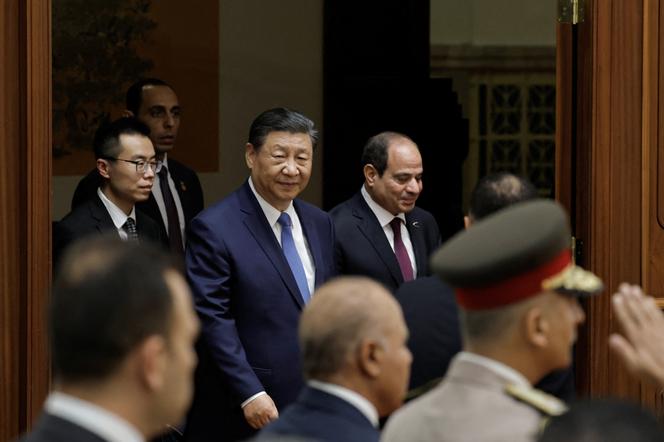


Chinese President Xi Jinping first invoked history on Thursday, May 30, at the opening of the China-Arab States Cooperation Forum in Beijing, recalling the "friendly exchanges along the ancient Silk Road," to underline Beijing's enduring affinity with the region. But current affairs were on everyone's mind and set to be the central topic of the forum, for which the Emirati Sheikh Mohamed bin Zayed Al Nahyan and the presidents of Egypt, Abdel Fattah El-Sisi, and Tunisia, Kais Saied, in particular, had made the trip. China's ambition with this summit is to demonstrate its convergence of views on regional issues, primarily the Palestinian question, and to promote its economic interests.
With the United States entangled in its support for Israel, despite the appalling images of civilians being bombed in Rafah, China is finding that it has plenty of scope to take the opposite view. In welcoming Egyptian President El-Sisi with honors on Wednesday evening, the Chinese head of state declared that his country was "deeply saddened" by the situation in the Gaza Strip. He returned to the subject on Thursday: "War should not continue indefinitely. Justice should not be absent forever," said Xi, calling for the organization of "a more broad-based, authoritative and effective international peace conference" on the conflict. China's fundamental position remains unchanged: the need for an immediate ceasefire and the creation of a Palestinian state, recognized by the United Nations.
The longer Israel's military operations in Gaza continue, the more, from China's point of view, the image of the US in the Middle East deteriorates. "It bleeds US leadership and credibility. China is clearly identifying with the Arab countries in the Gaza crisis. China is trying to gain support and influence in the region and the security architecture it envisions is also less centered on the US role as the security provider," noted Yun Sun, director of the China Program at the Stimson Center in Washington.
Noting the closeness between the US and Israel in the Gaza crisis, Arab countries have come to Beijing for diplomatic support. On Thursday, El-Sisi called for an end to "the Israeli siege." He also urged the international community to stop any attempt at forcing Palestinians to forcibly flee their land. To underline Chinese-Egyptian political closeness, the Chinese press recalled that in 1956, President Nasser had been the first African and Arab head of state to recognize the People's Republic of China, while Beijing had supported Cairo in the Suez crisis.
You have 45.11% of this article left to read. The rest is for subscribers only.
